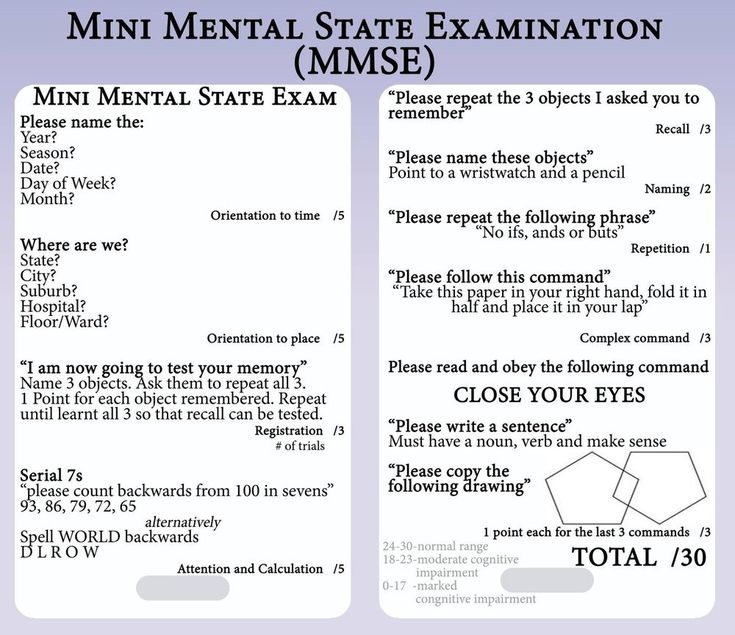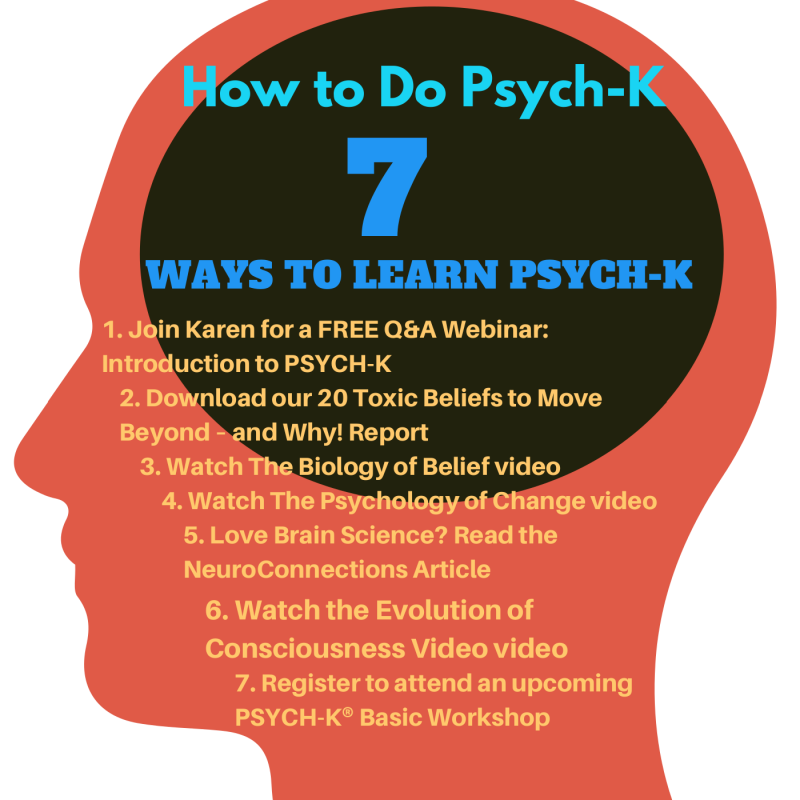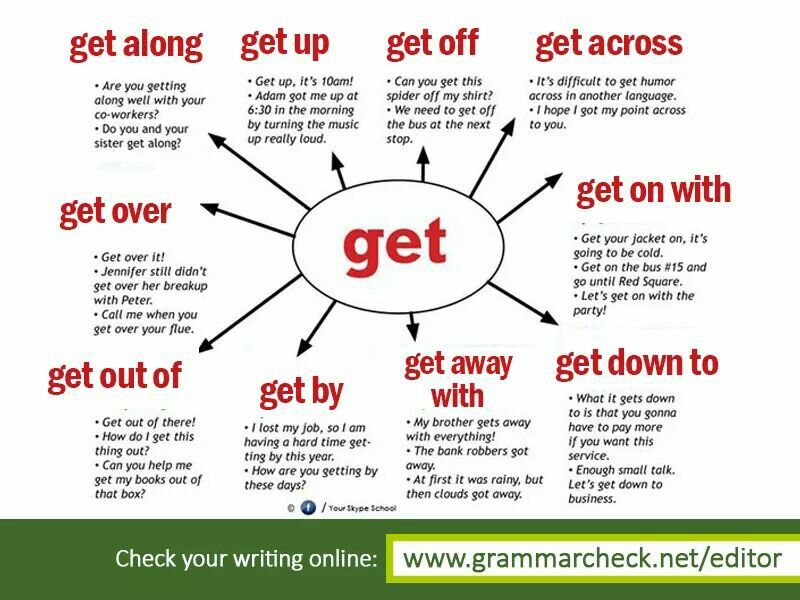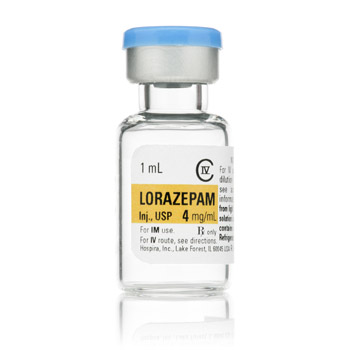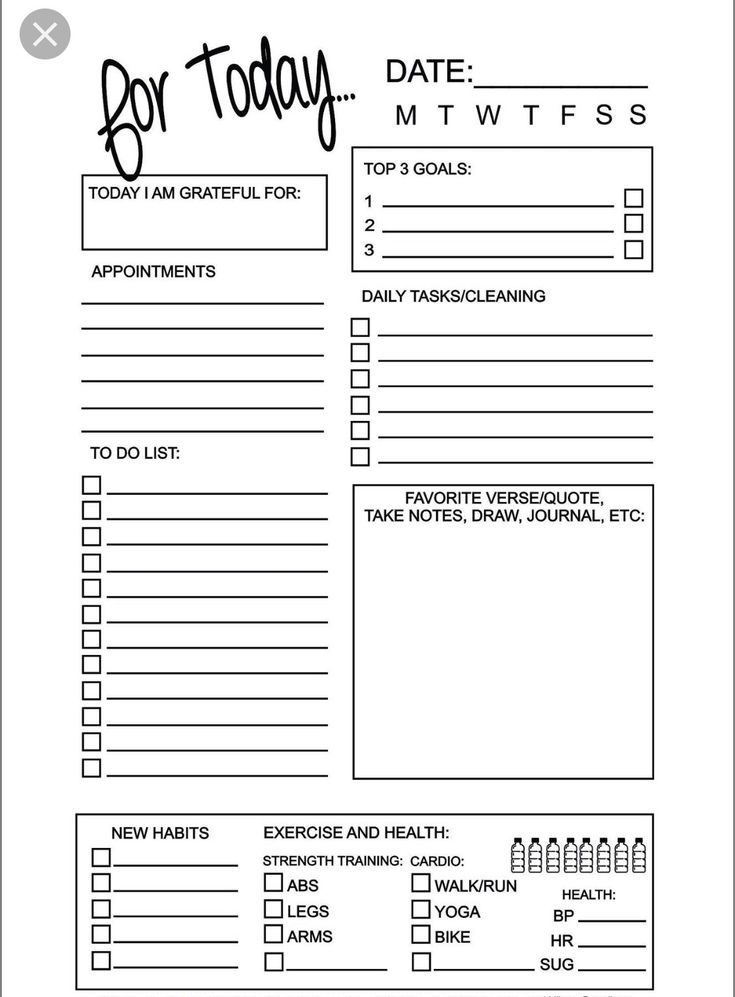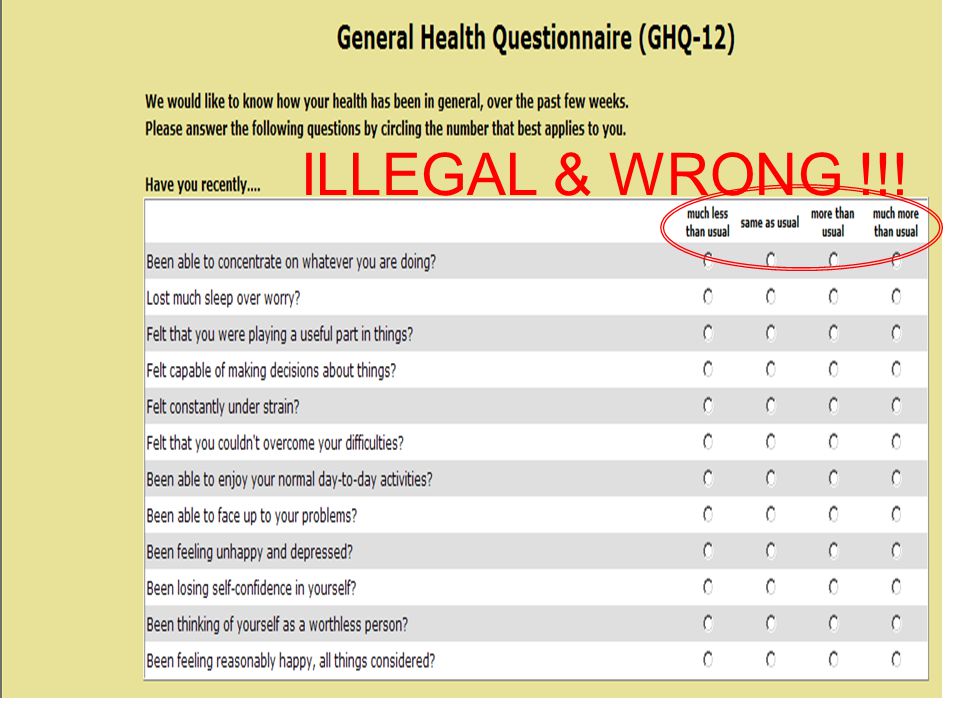Psych screening test
Take a Mental Health Test
Online screening is one of the quickest and easiest ways to determine whether you are experiencing symptoms of a mental health condition.
Mental health conditions, such as depression or anxiety, are real, common and treatable. And recovery is possible.
Depression Test The Depression Test is for individuals who are feeling overwhelming sadness. The depression test is also available in Spanish.
Take Depression Test
Postpartum Depression Test (New & Expecting Parents) This test is for new and expecting parents who began feeling overwhelming sadness during pregnancy or after their child's birth.
Take Postpartum Depression Test (New & Expecting Parents)
Anxiety Test The Anxiety Test is for people who feel that worry and fear are affecting their ability to function day-to-day. The anxiety test is also available in Spanish.
Take Anxiety Test
Psychosis Test The Psychosis Test is for people who feel like their brain is playing tricks on them (seeing, hearing or believing things that don't seem real or quite right).
Take Psychosis Test
Bipolar Test The Bipolar Test is for people experiencing mood swings—unusual or extreme shifts in mood and energy.
Take Bipolar Test
Eating Disorder Test The Eating Disorder Test can help explore eating related concerns that have an impact on your physical health and overall well-being.
Take Eating Disorder Test
PTSD Test The PTSD (Post-Traumatic Stress Disorder) Test is for those who are experiencing ongoing distress after a traumatic life event.
Take PTSD Test
Parent Test: Your Child’s Mental Health The Parent Test helps parents determine if their child’s emotions, attention, or behaviors might be a mental health concern.
Take Parent Test: Your Child’s Mental Health
Youth Mental Health Test The Youth Test is for young people (age 11-17) who are concerned that their emotions, attention, or behaviors might be signs of a problem.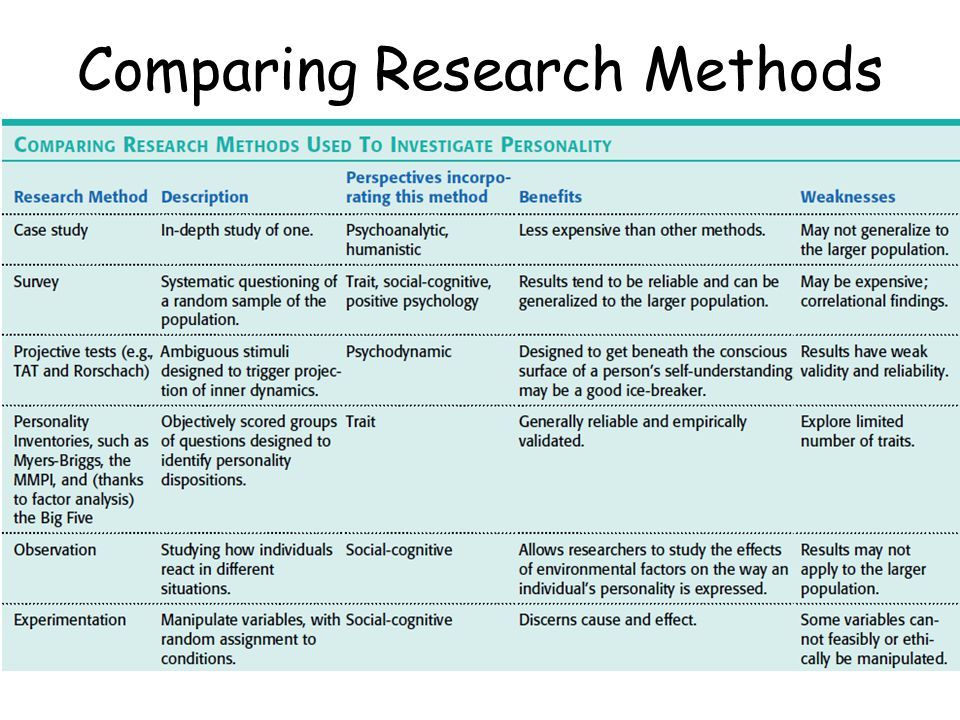
Take Youth Mental Health Test
ADHD Test The ADHD Test is for people (both youth and adults) who have trouble focusing, remembering things, completing tasks, and/or sitting still.
Take ADHD Test
Addiction Test The Addiction Test is for people who are concerned about their use of alcohol or drugs.
Take Addiction Test
Test de depresión El test de depresión es para los individuales que sienten una tristeza abrumadora. También está disponible en inglés.
Tome el Test de depresión
Test de ansiedad El test de ansiedad es para las personas que sienten que la preocupación y el temor afectan su vida cotidiana. También está disponible en inglés.
Tome el Test de ansiedad
Self-Injury Survey The Self-Injury Survey is for people who have hurt themselves on purpose without wanting to die.
Take Self-Injury Survey
Connection and Well-Being Survey The Connectedness and Well-Being Survey is a chance to reflect on how your connections to nature, spirituality, and other people affect your mental health.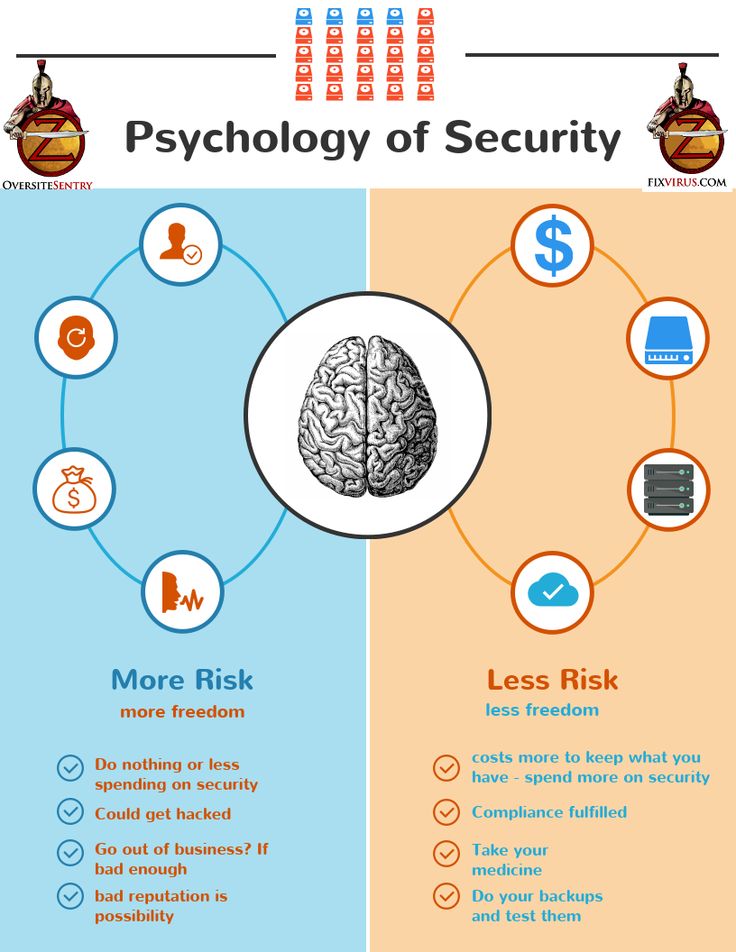 Your answers also help us develop better mental health supports for people like you!
Your answers also help us develop better mental health supports for people like you!
Take Connection and Well-Being Survey
After your mental health test, you will see information, resources, and tools to help you understand and improve your mental health.
How can online mental health testing help me?
What do my mental health test results mean?
Please note: Online screening tools are meant to be a quick snapshot of your mental health. If your results indicate you may be experiencing symptoms of a mental illness, consider sharing your results with someone. A mental health provider (such as a doctor or a therapist) can give you a full assessment and talk to you about options for how to feel better.
This website is an informational resource. We are not a crisis support line. If you need immediate help, you can reach the Suicide & Crisis Lifeline by calling or texting 988 or using the chat box at 988lifeline.org/chat. You can also text “MHA” to 741-741 to reach the Crisis Text Line. Warmlines are an excellent place for non-crisis support.
You can also text “MHA” to 741-741 to reach the Crisis Text Line. Warmlines are an excellent place for non-crisis support.
For all other screening-related questions and non-emergency support, please use MHA’s Contact Us form.
Mental Health America Inc., sponsors, partners, and advertisers disclaim any liability, loss, or risk incurred as a consequence, directly or indirectly, of the use and application of these screens.
Work Health Survey
This is a not a mental health screening but a survey meant to help us identify strategies to help companies do better. The survey is updated annually.
Take the work health Survey
MHA Screening is made possible through the generous contributions of individuals and organizations that share our vision of mental health for all. This program is supported, in part, through philanthropic contributions from Abbvie, Alkermes, The Anthem Foundation, The Faas Foundation, Janssen, Neurocrine Biosciences, The NFL Foundation, Sage Therapeutics, Takeda Lundbeck Alliance, and Teva.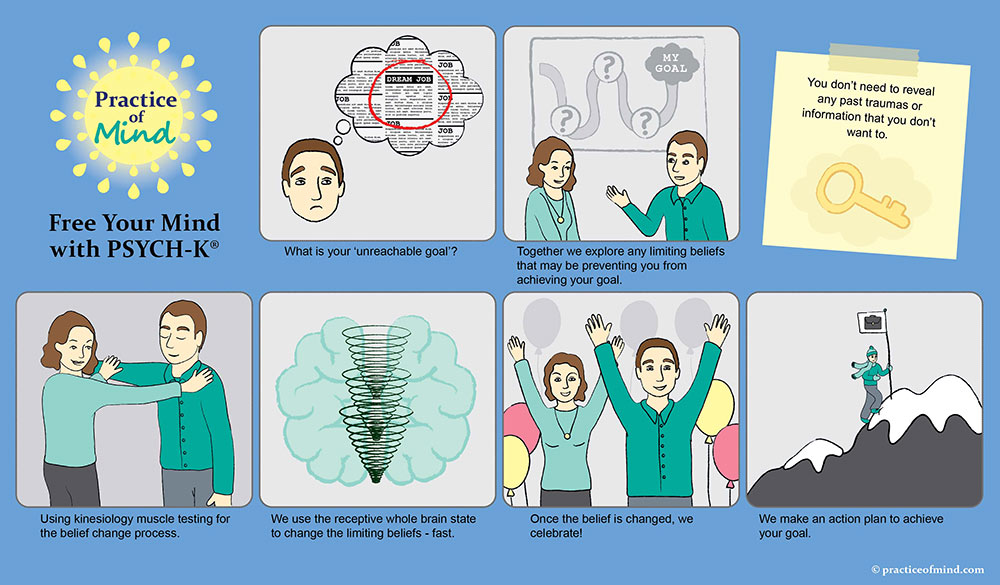
Mental Health Screening: MedlinePlus Medical Test
What is a mental health screening?
A mental health screening is a standard set of questions that a person answers to help a health care provider check for signs of a mental disorder. The questions help the provider learn about a person's mood, thinking, behavior, and memory.
A mental health screening is a way to catch mental health conditions early. If the screening shows signs of a disorder, more testing is usually needed to diagnose a specific mental disorder. Mental disorders are also called mental illnesses, and a mental health screening may be called a "mental illness test" or a "psychology test."
More than half of all Americans will have a mental disorder at some point in their lives. Their symptoms may range from mild to severe. Common mental disorders include:
- Mood disorders, which include depression, bipolar disorder, seasonal affective disorder (SAD), and self-harm.
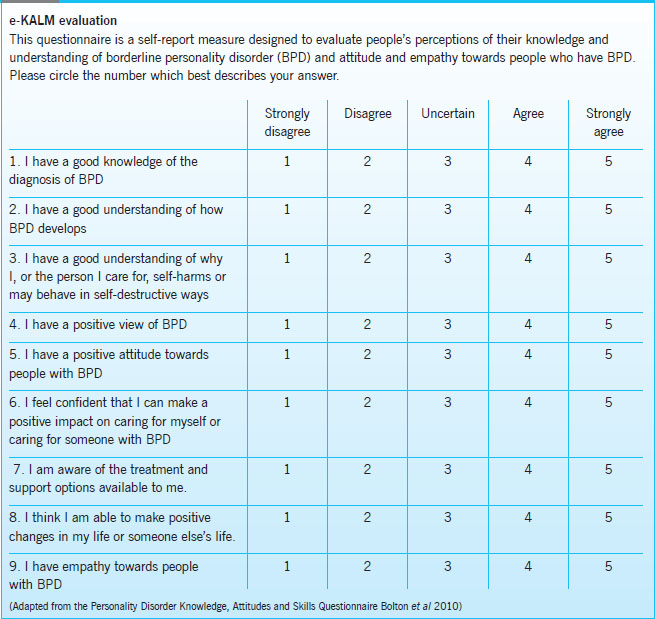
- Anxiety disorders, which include panic disorder, phobias, and obsessive-compulsive disorder (OCD). Anxiety is a common disorder in children.
- Eating disorders, which include anorexia and bulimia.
- Attention deficit hyperactivity disorder (ADHD). ADHD is one of the most common mental health disorders in children. It can also continue into adulthood.
- Post-traumatic stress disorder (PTSD).
- Personality disorders.
- Substance use disorders, which include alcohol use disorder and drug use and addiction.
- Psychotic disorders, which include schizophrenia.
These and other mental disorders affect people of all ages, including children. So, there are special mental health screening tests designed for children, teenagers, and older adults. Some screening tests look for general signs of the most common mental disorders.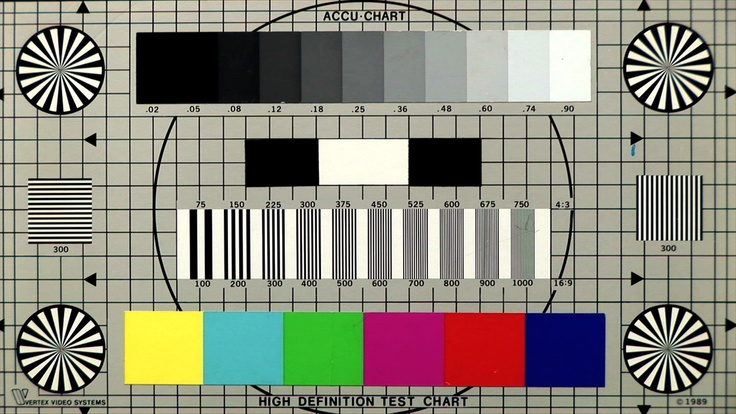 Other screening tests look for signs related to specific types of disorders.
Other screening tests look for signs related to specific types of disorders.
Mental health screening can be an important part of your total health at every stage of life. Mental health symptoms can be a sign of certain physical conditions. And certain mental disorders can increase the risk of developing physical health problems. With proper mental health screening, diagnosis, and treatment, people with mental health disorders can get better and many recover completely.
Other names: mental health assessment, mental illness test, psychological evaluation, psychology test, psychiatric evaluation
What is it used for?
A mental health screening is usually used as the first step to find out if a person has signs of a mental disorder. It may be part of a routine checkup. A screening test is used to see whether a person:
- Has a risk for developing a mental disorder
- Needs more testing to diagnose or rule out a mental health disorder
- Needs mental health care right away, before diagnostic testing can be finished
Mental health screening may also be used to see if treatment for a mental disorder is working.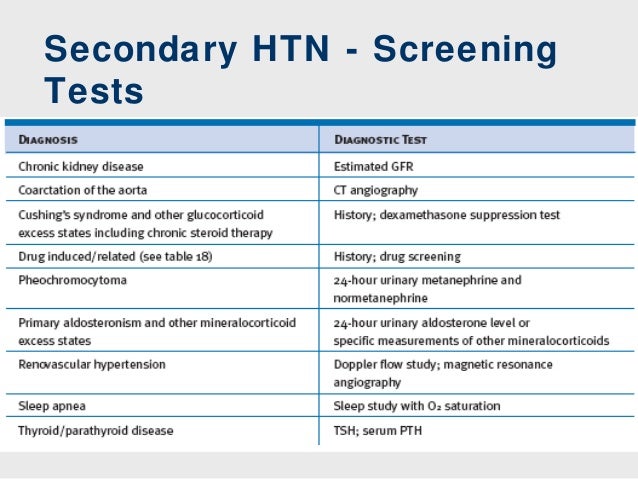
A primary care provider may use mental health screening to help decide if a person needs to see a mental health provider for testing and/or treatment. A mental health provider is a health care professional who specializes in diagnosing and treating mental health problems. A mental health provider may use the results of a screening test to choose which other tests are needed to diagnose or rule out a specific mental disorder.
Why do I need a mental health screening?
You or your child may need a mental health screening if you have symptoms of a mental disorder. Different disorders have specific symptoms.
General symptoms of mental disorders may include:
- Eating or sleeping too much or too little
- Pulling away from people and usual activities
- Fatigue and lack of energy
- Feeling helpless, hopeless, or numb like nothing matters
- Smoking, drinking, or using drugs more than usual
- Feeling unusually confused, forgetful, nervous, angry, worried, or scared
- Severe mood swings that cause problems in relationships
- Thoughts and memories that you can't get out of your head
- Hearing voices or believing things that aren't true
- Thinking about death, suicide or harming yourself or others
Signs of mental disorders in children may also include:
- Frequent tantrums and other behavior problems
- Frequent stomachaches or headaches without a known medical cause
- Difficulty in school
- Repeating actions or constantly checking things out of fear that something bad will happen
- Talking a lot about fears, worries, death, or suicide
If you or someone you know needs immediate help for a mental health disorder:
- Call 911 or go to your local emergency room
- Contact a crisis hotline.
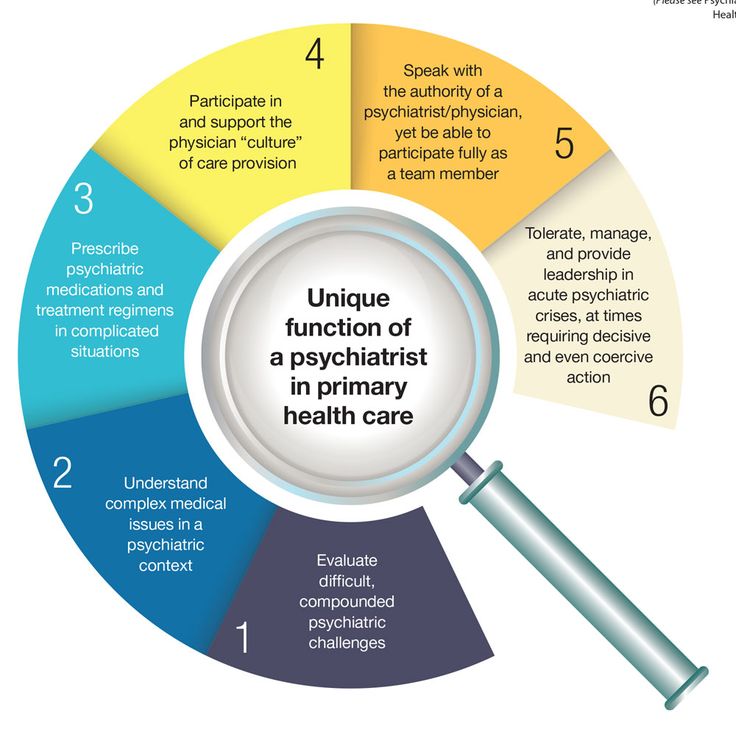 In the United States, you can reach the National Suicide and Crisis Lifeline at any time:
In the United States, you can reach the National Suicide and Crisis Lifeline at any time: - Call or text 988
- Chat online with Lifeline Chat
- TTY users: Use your preferred relay service or dial 711 then 988
- Veterans can contact the Veterans Crisis Line:
- Call 988 then press 1
- Text 838255
- Chat online
- Call your mental health provider or other provider
- Reach out to a loved one or close friend
What happens during a mental health screening?
If you are having a mental health screening, you'll answer a set of questions about your symptoms. The questions will be about your feelings, mood, sleep, appetite, and other parts of your life. A provider may ask you the questions or you may fill out a questionnaire and discuss your answers afterwards. It's important that your answers are honest and complete.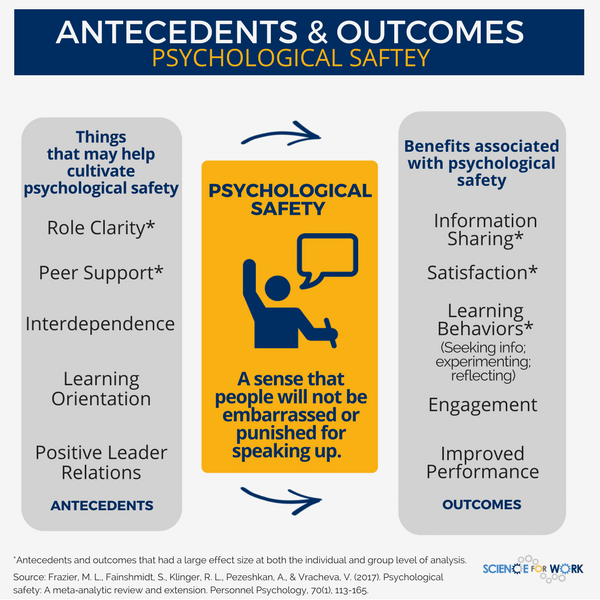
If your primary care provider is doing the screening, you may also have a physical exam and blood tests. There are no medical tests that can diagnose mental health disorders. But certain blood tests can show if a physical condition, such as thyroid disease or an electrolyte imbalance, is causing mental health symptoms.
During a blood test, a health care professional will take a blood sample from a vein in your arm, using a small needle. After the needle is inserted, a small amount of blood will be collected into a test tube or vial. You may feel a little sting when the needle goes in or out. This usually takes less than five minutes.
If your provider thinks your symptoms could be caused by physical problems with your brain or nerves, you may have a neurological exam or imaging tests of your brain.
If your child is having a mental health screening, the test will be geared to your child's age and abilities. You may be asked to fill out a questionnaire about your child's behavior.
The screening may be done by your child's primary care provider or a mental health provider who works with children and teenagers. Your child's provider may also order medical tests to look for physical causes of mental disorders. Some schools provide mental health screening services.
Will I need to do anything to prepare for a mental health screening?
You usually don't need any special preparations for a mental health screening. If your child is having a screening, you may be asked to keep notes on your child's behavior for a few days before the test.
Are there any risks to screening?
There is no risk to having a physical exam or taking a questionnaire.
There is very little risk to having a blood test. You may have slight pain or bruising at the spot where the needle was put in, but most symptoms go away quickly.
What do the results mean?
Usually, the provider who did the screening will explain the results. If the results show signs of a mental health disorder, the next steps depend on the type of disorder and how serious it may be. If a primary care provider did the screening, the provider may:
If a primary care provider did the screening, the provider may:
- Talk with you about treatments
- Order tests to check for other health problems that may be causing symptoms
- Refer you or your child to a mental health provider
A mental health provider may do more tests to confirm a diagnosis and help develop a treatment plan. Starting treatment as soon as possible may improve the chance of recovery.
Learn more about laboratory tests, reference ranges, and understanding results.
Is there anything else I need to know about a mental health screening?
There are many types of mental health providers who treat mental disorders. Your or your child's primary health care provider or school can help you find the right support.
These are some of the providers who have training to treat mental health disorders:
- Psychiatrists are medical doctors who specialize in mental health. Psychiatrists can prescribe medicine.
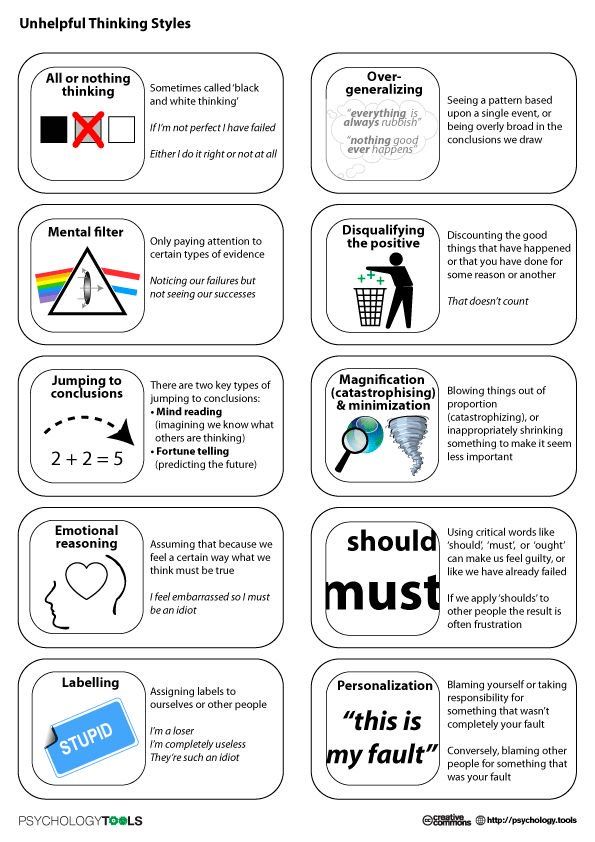
- Psychologists generally have doctoral degrees, but they do not have medical degrees. They can't prescribe medicine unless they have a special license. Some psychologists work with providers who can prescribe medicine. Psychologists may use one-on-one counseling and/or group therapy sessions.
- Psychiatric-mental health nurses are nurses with special training in mental health problems. Nurses who may have a master's or doctoral degree in psychiatric-mental health nursing include, advanced practice registered nurses (APRNs), certified nurse practitioners (CNPs), and clinical nurse specialists (CNSs). In some states, certain nurses can prescribe medicines.
- Licensed clinical social workers have at least a master's degree in social work with special training in mental health. They can't prescribe medicine, but may work with providers who can prescribe medicine. Providers who are licensed clinical social workers usually have LCSW or LICSW after their names.

- Licensed professional counselors (LPC) may also be called clinicians or therapists. States have different names of these licenses, such as LMFT (licensed marriage and family therapist). These professionals usually have a master's degree in a field related to mental health. They can't prescribe medicine but may work with providers who can prescribe.
References
- American Academy of Pediatrics [Internet]. Elk Grove Village (IL): American Academy of Pediatrics; c2022. Patient Care: Screening Tools: Pediatric Mental Health Minute Series; [cited 2022 Oct 18]; [about 6 screens]. Available from: https://www.aap.org/en/patient-care/mental-health-minute/screening-tools/
- American Psychiatric Nurses Association [Internet]. Falls Church (VA): American Psychiatric Nurses Association; Psychiatric Mental Health Nurses; [cited 2022 Oct 12]; [about 1 screen]. Available from: https://www.apna.org/about-psychiatric-nursing/?pageid=3292
- American Psychological Association [Internet].
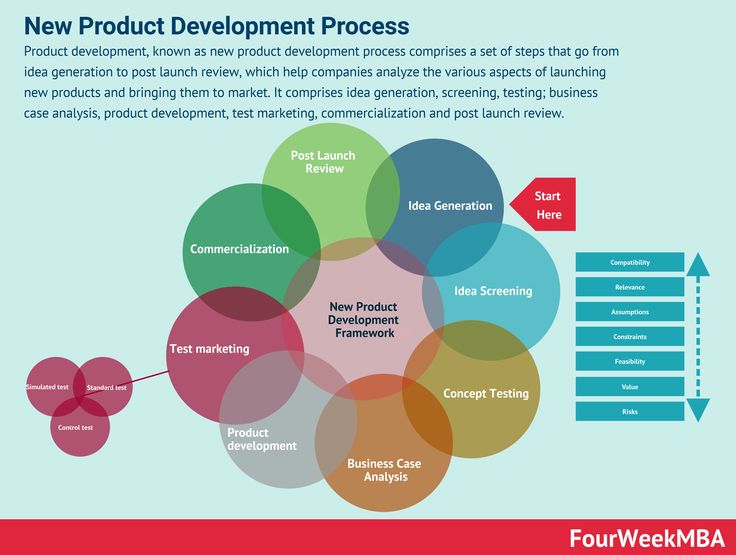 Washington D.C.: American Psychological Services Inc.; c2022. Distinguishing Between Screening and Assessment for Mental and Behavioral Health Problems; [2014 Dec; cited 2022 Oct 18]; [about 3 screens]. Available from: https://www.apaservices.org/practice/reimbursement/billing/assessment-screening?_ga=2.102075329.1186226343.1666222147-627372789.1666222147
Washington D.C.: American Psychological Services Inc.; c2022. Distinguishing Between Screening and Assessment for Mental and Behavioral Health Problems; [2014 Dec; cited 2022 Oct 18]; [about 3 screens]. Available from: https://www.apaservices.org/practice/reimbursement/billing/assessment-screening?_ga=2.102075329.1186226343.1666222147-627372789.1666222147 - Centers for Disease Control and Prevention [Internet]. Atlanta: U.S. Department of Health and Human Services: Children's Mental Health [updated 2022 Jun 3; cited 2022 Oct 12]; [about 3 screens]. Available from: https://www.cdc.gov/childrensmentalhealth/index.html
- Centers for Disease Control and Prevention [Internet]. Atlanta: U.S. Department of Health and Human Services; Learn About Mental Health [updated 2021 Jun 28; cited 2022 Oct 12]; [about 2 screens]. Available from: https://www.cdc.gov/mentalhealth/learn
- Giardino A. Pediatric Depression Workup. [Update 2017 Nov 15; cited 2022 Oct 18]. In Medscape eMedicine:Drugs & Disease [Internet].
 Atlanta (GA): WebMD LLC; c. 1994-2022. Available from: https://emedicine.medscape.com/article/914192-workup
Atlanta (GA): WebMD LLC; c. 1994-2022. Available from: https://emedicine.medscape.com/article/914192-workup - Healthfinder.gov. [Internet]. Washington D.C.: Office of Disease Prevention and Health Promotion; U.S. Department of Health and Human Services; Get Your Teen Screened for Depression; [updated 2022 Jul 15; cited 2022 Oct 18]; [about 5 screens]. Available from: https://health.gov/myhealthfinder/healthy-living/mental-health-and-relationships/get-your-teen-screened-depression#the-basics-tab
- Johns Hopkins Medicine [Internet]. The Johns Hopkins University, The Johns Hopkins Hospital, and Johns Hopkins Health System; c2022. Health: Blood Test; [cited 2022 Oct 18]; [about 3 screens]. Available from: https://www.hopkinsmedicine.org/health/treatment-tests-and-therapies/blood-test
- Mayo Clinic [Internet]. Mayo Foundation for Medical Education and Research; c1998–2022. Mental health providers: Tips on finding one; [cited 2022 Oct 12]; [about 5 screens]. Available from: https://www.
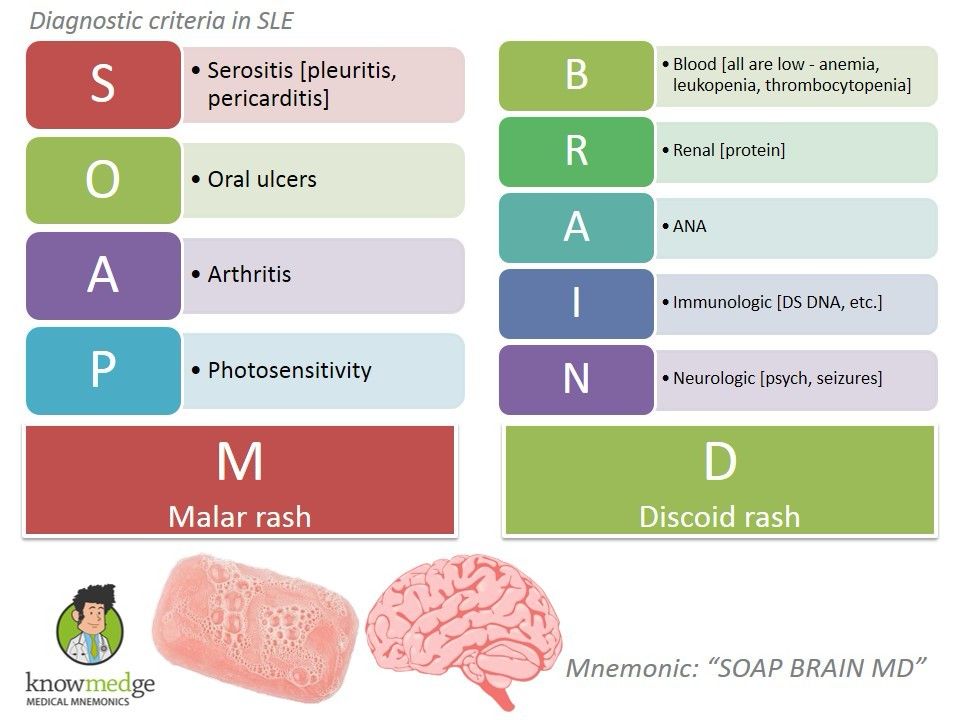 mayoclinic.org/diseases-conditions/mental-illness/in-depth/mental-health-providers/art-20045530
mayoclinic.org/diseases-conditions/mental-illness/in-depth/mental-health-providers/art-20045530 - Mayo Clinic [Internet]. Mayo Foundation for Medical Education and Research; c1998–2022. Mental illness: Diagnosis and treatment; [cited 2022 Oct 12]; [about 11 screens]. Available from: https://www.mayoclinic.org/diseases-conditions/mental-illness/diagnosis-treatment/drc-20374974
- Mayo Clinic [Internet]. Mayo Foundation for Medical Education and Research; c1998–2022. Mental illness in Children: Know the Signs; [cited 2022 Oct 18]; [about 7 screens]. Available from: https://www.mayoclinic.org/healthy-lifestyle/childrens-health/in-depth/mental-illness-in-children/art-20046577
- Mayo Clinic [Internet]. Mayo Foundation for Medical Education and Research; c1998–2022. Mental illness: Symptoms and causes; [cited 2022 Oct 12]; [about 7 screens]. Available from: https://www.mayoclinic.org/diseases-conditions/mental-illness/symptoms-causes/syc-20374968
- Michigan Medicine: University of Michigan [Internet].
 Ann Arbor (MI): Regents of the University of Michigan; c1995–2022. Mental Health Assessment; [updated 2022 Feb 9; cited 2022 Oct 12]; [about 6 screens]. Available from: https://www.uofmhealth.org/health-library/aa79756#tp16777
Ann Arbor (MI): Regents of the University of Michigan; c1995–2022. Mental Health Assessment; [updated 2022 Feb 9; cited 2022 Oct 12]; [about 6 screens]. Available from: https://www.uofmhealth.org/health-library/aa79756#tp16777 - MentalHealth.gov [Internet]. Washington (DC): U.S. Department of Health and Human Services; What to Look For; [updated 2022, Mar 10; cited 2022 Oct 10]; [about 2 screens]. Available from: https://www.mentalhealth.gov/what-to-look-for
- National Alliance on Mental Illness [Internet]. Arlington (VA): NAMI; c2022. Warning Signs and Symptoms; [cited 2022 Oct 12]; [about 2 screens]. Available from: https://www.nami.org/About-Mental-Illness/Warning-Signs-and-Symptoms
- National Alliance on Mental Illness [Internet]. Arlington (VA): NAMI; c2022. Types of Mental Health Professionals; [cited 2022 Oct 12]; [about 3 screens]. Available from: https://www.nami.org/About-Mental-Illness/Treatments/Types-of-Mental-Health-Professionals
- National Institute of Mental Health [Internet].
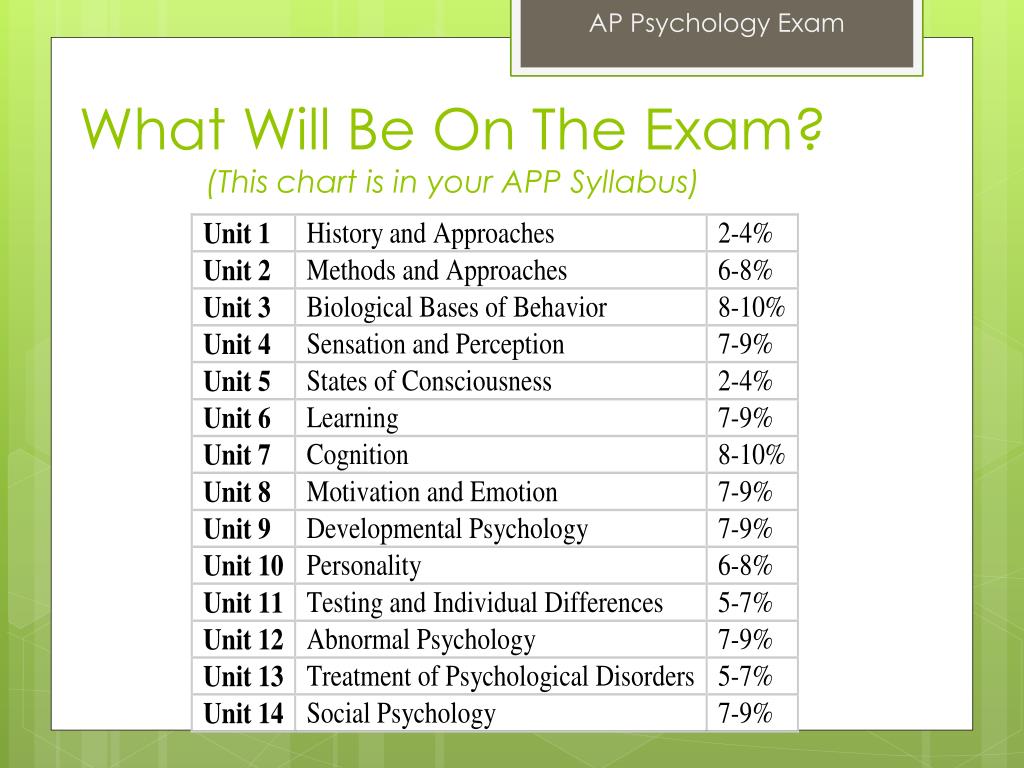 Bethesda (MD): U.S. Department of Health and Human Services; Child and Adolescent Mental Health; [reviewed 2021 May; cited 2022 Oct 18]; [about 5 screens]. Available from: https://www.nimh.nih.gov/health/topics/child-and-adolescent-mental-health
Bethesda (MD): U.S. Department of Health and Human Services; Child and Adolescent Mental Health; [reviewed 2021 May; cited 2022 Oct 18]; [about 5 screens]. Available from: https://www.nimh.nih.gov/health/topics/child-and-adolescent-mental-health - National Institute of Mental Health [Internet]. Bethesda (MD): U.S. Department of Health and Human Services; Chronic Illness and Mental Health: Recognizing and Treating Depression; [revised 2021; cited 2022 Oct 18]; [about 6 screens]. Available from: https://www.nimh.nih.gov/health/publications/chronic-illness-mental-health
- National Institute of Mental Health [Internet]. Bethesda (MD): U.S. Department of Health and Human Services; Eating Disorders; [updated 2021 Dec; cited 2022 Oct 12]; [about 3 screens]. Available from: https://www.nimh.nih.gov/health/topics/eating-disorders
- National Institute of Mental Health [Internet]. Bethesda (MD): U.S. Department of Health and Human Services; Mental Illness; [updated 2022 Jan; cited 2022 Oct 12]; [about 7 screens].
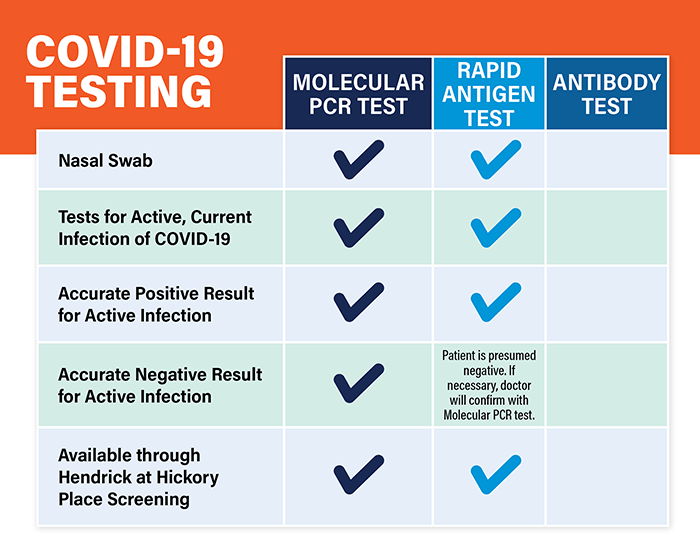 Available from: https://www.nimh.nih.gov/health/statistics/mental-illness
Available from: https://www.nimh.nih.gov/health/statistics/mental-illness - Patti L, Gupta M. Change in Mental Status. [Updated 2022 Aug 8; cited 2022 Oct 18]. In: StatPearls [Internet]. Treasure Island (FL): StatPearls Publishing; 2022 Jan-. Available from: https://www.ncbi.nlm.nih.gov/books/NBK441973/
Screening test for drug abuse Dast (Drug abuse screening test)
Psychological workshop ↓
Scales : Substance abuse problems/
Test Purpose : The test identifies problems related to drug use.
Answer options:
- Yes.
- No
Test
- Have you taken drugs without a doctor's recommendation? nine0016
- Have you abused any medications/drugs prescribed by your doctor?
- Have you abused more than one prescription drug/drug at the same time?
- Can you go a week without medicines/drugs (except those that are medically indicated to you)?
- Can you always stop using drugs whenever you want?
- Do you constantly abuse drugs/drugs?
- Have you tried to control your drug use in certain situations? nine0016
- Have you experienced complete blackouts or "outbursts" as a result of taking drugs?
- Have you ever felt bad because of drug abuse?
- Did your spouse or parents complain about your drug use?
- Do your friends and relatives suspect that you use drugs?
- Has drug use created problems with your spouse?
- Has anyone in your family ever sought help with problems related to your drug use? nine0016
- Have you lost friends because of your drug use?
- Have you ever neglected family or missed work because of drugs?
- Have you ever had problems at work because of drug abuse?
- Have you lost your job due to drug abuse?
- Have you ever gotten into a fight while under the influence of drugs?
- Have you ever been arrested for unusual behavior while under the influence of drugs? nine0016
- Have you ever been arrested for driving under the influence of drugs?
- Have you been involved in illegal activities to get drugs?
- Have you ever been arrested for drug possession?
- Have you experienced withdrawal symptoms after taking drugs?
- Do you have medical problems related to drug use (eg memory problems, hepatitis, AIDS, seizures, bleeding, etc.
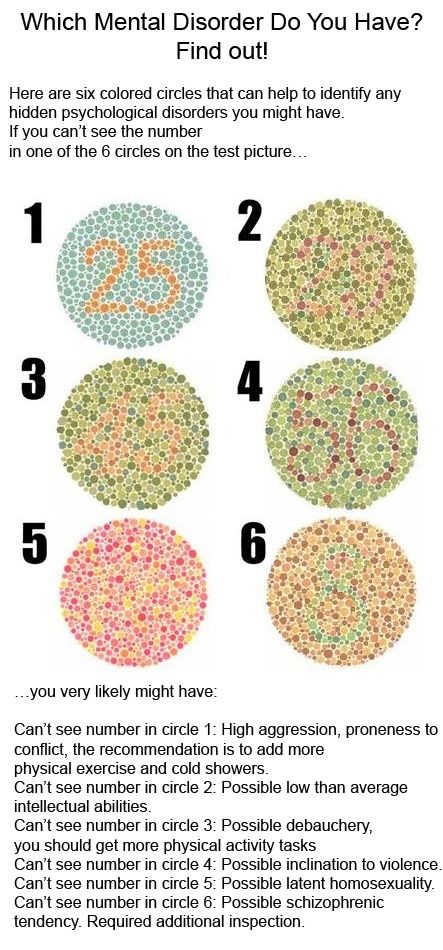 )?
)? - Have you contacted anyone for help with a drug problem? nine0016
- Have you ever been admitted to hospital because of drug-related medical problems?
- Have you participated in treatment programs for people who use drugs?
- Have you received outpatient treatment for drug use?
Processing and interpretation of test results
Key to the test
1 point is awarded for each positive answer.
Interpretation of test results
A total score of 6 or more indicates a substance abuse problem. nine0003
Similar materials in the section Psychological workshop:
- Study of children's self-esteem
- Test of the Structure of Intelligence (TSI) by R. Amthauer (continued)
- Methodology "Study of visual-figurative memory"
- Pathological diagnostic questionnaire for adolescents
- Environmental laboratory assistant
- Study of children's perception of graphic representation of emotions
- Methodology for identifying the type of relationship "I am different" (a study of preschool children) Nepomnyashchaya N.
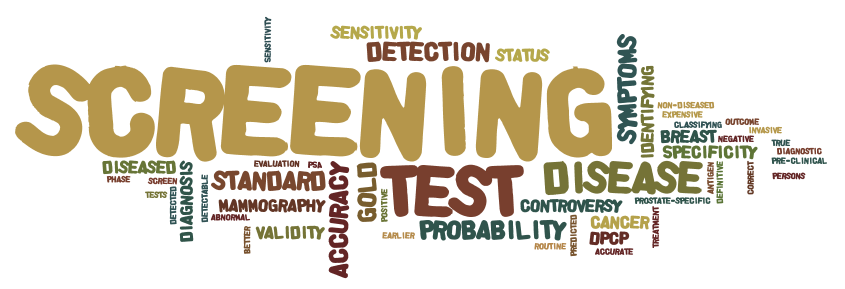 I. nine0016
I. nine0016 - Diagnosis of short-term auditory memory
- Travel method
- Test "Study of flexibility in creating words"
Take a depression test. Rate the severity of the disorder
2017-08-29
The presented test was developed on the basis of the "Hospital Anxiety and Depression Scale" to identify and assess the severity of anxiety disorder, depression. This test is usually used as a screening test, while for a more detailed study of the identified violations, an examination by a psychotherapist or psychiatrist is recommended. nine0003
note
Test results are approximate, indicative. An experienced doctor can both confirm them and refute them. If you are concerned about your mental state, do not put off a visit to a psychotherapist or psychiatrist.
